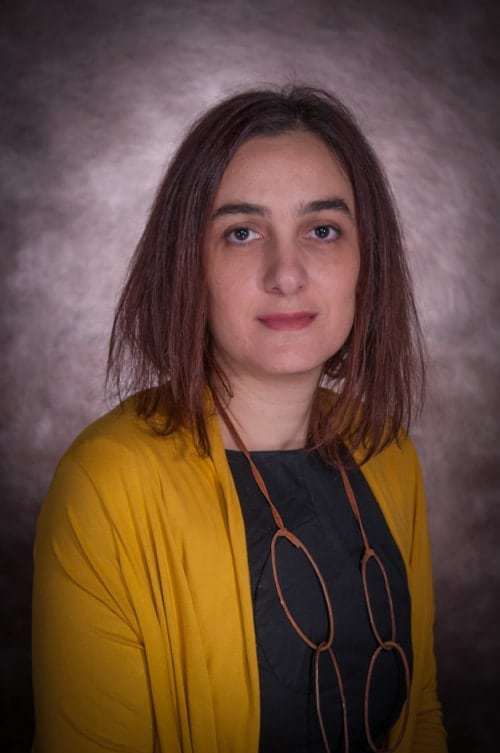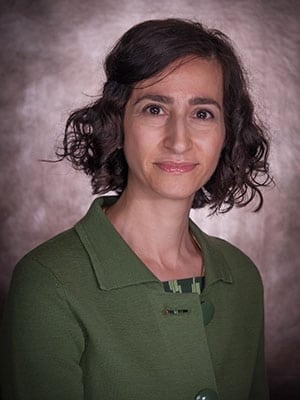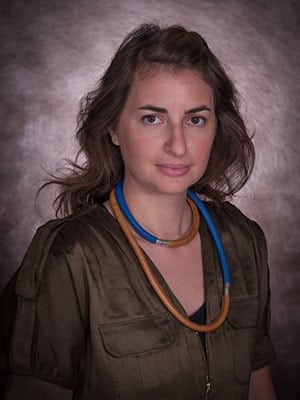Architecture
(MArch, Integrated Master in Architecture, 5 years / BAArch, Bachelor of Arts in Architecture, 4 years)
Duration
5/4 Years
Qualification Awarded
Integrated Master in Architecture (MArch) / Bachelor of Arts in Architecture (BAArch)
Level of Qualification
Integrated Master (2nd Cycle)
Language of Instruction
English
Mode of Study
Full-time or Part-time
Minimum ECTs Credits
MArch, 300ECTS / BAArch, 240ECTS
Request Information
Architecture (MArch, Integrated Master in Architecture, 5 years / BAArch, Bachelor of Arts in Architecture, 4 years)
| Duration | 5/4 Years |
| Qualification Awarded | Integrated Master in Architecture (MArch) / Bachelor of Arts in Architecture (BAArch) |
| Level of Qualification | Integrated Master (2nd Cycle) |
| Language of Instruction | English |
| Mode of Study | Full-time or Part-time |
| Minimum ECTS Credits | MArch, 300ECTS / BAArch, 240ECTS |
Request Information
The Architecture Programme provides students with a comprehensive set of skills, competences and knowledge with the aim of preparing them for a career in Architecture.
The objective is to create critical thinkers, who are intellectually acute, socially aware, and technically skilled architects that can meaningfully contribute to contemporary architectural discourse. A strong design-based education equips students with both a hands-on approach and advanced knowledge and understanding of cutting-edge digital tools and technologies. Global issues are addressed, along with local conditions of culture, climate, the local industry and social needs. Ecological and sustainable thinking are highly valued, providing the necessary tools of context, comprehension and application of social, environmental and cultural aspects. The programme caters to diversity, enabling students to prepare complex design projects of various scales and in diverse contexts.
The programme acknowledges that design teaching is central to architectural education and is characterized by a strong emphasis on critical thinking, on positive and constructive reasoning and rationality, and on creative and reflective thought. Design is considered as the core skill of the architect. The programme develops around five thematic headings: design, technology, history and theory, communication and management & practice. Design projects aim to integrate all thematic positions into the process of ‘design thinking’ and to develop the students’ skill of combining and assimilating complex and multiple components of information and knowledge into the project proposal.
Following the completion of the 5-year cycle of studies (300ECTS) students are awarded an Integrated Master in Architecture (MArch). Students may choose to graduate in year 4 (following the completion of 240ECTS) with a Bachelor of Arts in Architecture (BAArch).
Graduates of the programme are well prepared for a labour market orientation and can pursue a professional career in architectural practice. They are also well equipped for further postgraduate studies or an academic career.
The programme is accredited by the CYQAA and has been designed in accordance with the European Commission’s Architects Directive. It is recognized by the Cyprus Scientific and Technical Chamber (ETEK – Επιστημονικό Τεχνικό Επιμελητήριο Κύπρου) and the European Commission.
Occupational Profiles of Graduates with Examples
Graduates of the Architecture Programme are well prepared for a labour market orientation and can pursue a professional career in architectural practice, both locally and abroad. They are also well equipped for further postgraduate studies or an academic career.
Indicative areas of possible employment sectors:
- Architecture, Interior Design, Landscape, Urban Design and Planning practices.
- Built Environment Engineering practices.
- Architecture, Planning and Engineering Consultancies.
- Governmental and Municipal Public sectors such as Planning Authorities, Historic Preservation and Cultural Heritage departments.
- Governmental Ministry departments such as Environmental Preservation, Historic Urban Centres, Built Environment Heritage, Energy Classification of Buildings, National Monuments Departments.
- Retrofitting Building Industry, including both consultancy firms as well as Building Construction Industry.
- Non-Governmental-Organizations with relevant scope of work.
- Applied Arts and Design practices, such as product design, furniture design, theatre design, curating, visualization, industrial design, gaming industry etc.
- In private and public secondary education.
- In higher education as professors or researchers in Cyprus and abroad.
Access to Further Studies
Graduates of the programme can be accepted into Third Cycle degrees (Doctoral Degree, PhD)
The minimum admission requirement to an undergraduate programme of study is a recognized High School Leaving Certificate (HSLC) or equivalent internationally recognized qualification(s). Students with a lower HSLC grade than 7.5/10 or 15/20 or equivalent depending on the grading system of the country issuing the HSLC are provided with extra academic guidance and monitoring during the first year of their studies.
An additional admission requirement for the Department of Architecture is the submission of a portfolio and an interview with faculty members of the Department. The portfolio is required in order to demonstrate the student’s creative ability and skills which may not be reflected in school examination results. The portfolio can include examples of any creative projects carried out previously by the applicants, such as; artwork, design projects, photography, technical drawings, sketches, graphics etc. Portfolios are assessed for creative ability, drawing skills, an indication of spatial or technical understanding, expression through drawing/visual media and other skills demonstrating the imagination, awareness and thinking abilities of the prospective student. Together with the high school grade and student interview an overall assessment is made of each student assessing their appropriateness for the course.
The standard admission procedures of the University of Nicosia apply.
English Language Proficiency
The list below provides the minimum English Language Requirements (ELR) for enrollment to the programme of study. Students who do not possess any of the qualifications or stipulated grades listed below and hold IELTS with 4.5 and above, are required to take UNIC’s NEPTON English Placement Test (with no charge) and will receive English Language support classes.
- TOEFL – 525 and above
- Computer-based TOEFL – 193 and above
- Internet-based TOEFL – 80 and above
- IELTS – 6 and above
- Cambridge Exams [First Certificate] – B and above
- Cambridge Exams [Proficiency Certificate – C and above
- GCSE English Language “O” Level – C and above
- Michigan Examination of Proficiency in English (CaMLA) – Pass
- Pearson PTE General – Level 3 and above
- KPG (The Greek Foreign Language Examinations for the State Certificate of Language Proficiency) – Level B2 and above
- Anglia – Level B2 and above
- IEB Advances Programme English – Pass
- Examination for the Certificate of Proficiency in English (ECPE) Michigan Language Assessment by: Cambridge Assessment English & University of Michigan – 650 average score for ALL skills and above
Course assessment usually comprises of a comprehensive final exam and continuous assessment. Continuous assessment can include amongst others, mid-terms, projects and class participation.
Letter grades are calculated based on the weight of the final exam and the continuous assessment and the actual numerical marks obtained in these two assessment components. Based on the course grades the student’s semester grade point average (GPA) and cumulative point average (CPA) are calculated.
MArch: The student must complete 300 ECTS and all programme requirements.
BAArch: The student must complete 240 ECTS and all programme requirements.
A minimum cumulative grade point average (CPA) of 2.0 is required. Thus, although a ‘D-‘ is a PASS grade, in order to achieve a CPA of 2.0 an average grade of ‘C’ is required.
Upon successful completion of this program, the students should be able to:
- Create architectural designs that satisfy both aesthetic aspects of buildings as well as technical requirements.
- Extend relevant historical knowledge and theoretical concepts of architecture into the design thinking process.
- Consider the fine arts as a resource of conceptualisation and representation, and demonstrate their influence on architecture.
- Apply knowledge of urban design, planning and the skills involved in the planning process.
- Assess the relationship between people and buildings, demonstrating knowledge of the contextualisation and impact of buildings on the environment as well as the needs and aspirations of users.
- Comprehend the profession of architecture and the role of the architect within the design team, construction industry and wider society.
- Formulate project briefs through defining and thoughtfully considering user requirements, site, function, appropriate scale and technological strategy of building proposals.
- Critically appraise structural, constructional and materiality systems associated with architectural design.
- Recognize the physical problems, technologies and the function of buildings so as to provide them with internal conditions of comfort and protection against the climate, in the framework of sustainable development.
- Consider building users’ requirements within the constraints imposed by cost factors and building regulations.
- Translate design concepts into buildings and integrate plans into overall planning by utilising an adequate knowledge of the industries, organisations, regulations and procedures involved.
- Demonstrate their ability to undertake research and evaluate evidence in order to make informed judgements related to architectural design strategies and their appropriate application at a variety of scales.
- Apply a range of representation methods to present projects in a clear and effective way, supporting all stages of the design process.
Section: A Major Requirements
ECTS: Min. 270 Max. 270
| Course ID | Course Title | ECTS Credits |
|---|---|---|
| ARCH-101 | Introduction to Architectural Design | 12 |
| ARCH-102 | Architectural Design I | 12 |
| ARCH-111 | Introduction to Structures | 4 |
| ARCH-112 | Construction Materials and Finishes | 4 |
| ARCH-141 | History of Architecture I | 4 |
| ARCH-142 | History of Architecture II | 4 |
| ARCH-161 | Fundamentals of Drawing | 2 |
| ARCH-162 | Architectural Communication Skills | 4 |
| ARCH-171 | Experiencing Architecture | 2 |
| ARCH-201 | Architectural Design II | 12 |
| ARCH-202 | Architectural Design III | 12 |
| ARCH-211 | Structural Mechanics – Statics I | 4 |
| ARCH-212 | Structural Mechanics – Statics II | 4 |
| ARCH-232 | Space and Light | 4 |
| ARCH-242 | Introduction to Architectural Theory | 4 |
| ARCH-251 | Landscape Architecture | 4 |
| ARCH-252 | Cultural Heritage | 2 |
| ARCH-261 | Computer Aided Design | 4 |
| ARCH-262 | Advanced Computer Aided Design | 4 |
| ARCH-301 | Architectural Design IV – Urban Design | 12 |
| ARCH-302 | Architectural Design V – Building Technology | 12 |
| ARCH-311 | Construction I – Masonry/Reinforced Concrete | 4 |
| ARCH-312 | Construction II – Timber/Steel | 4 |
| ARCH-321 | Preservation and Restoration of Architectural Heritage | 4 |
| ARCH-322 | Building Services | 4 |
| ARCH-331 | Construction Workshop | 2 |
| ARCH-341 | History and Theory of the City | 4 |
| ARCH-342 | Advanced Spatial Theories | 4 |
| ARCH-351 | Contemporary Architects | 4 |
| ARCH-362 | Advanced CAD and Mixed Media | 4 |
| ARCH-401 | Architectural Design VI | 12 |
| ARCH-402 | Advanced Architectural Studio | 12 |
| ARCH-411 | Sustainable Design | 4 |
| ARCH-441 | History and Theory of Sustainable Design | 4 |
| ARCH-442 | Perceptions of Architecture | 4 |
| ARCH-452 | Special Topics in Architecture | 4 |
| ARCH-481 | Architectural Practice and Project Management | 4 |
| ARCH-482 | Work Placement | 6 |
| ARCH-501 | Introduction to Final Project | 12 |
| ARCH-502 | Final Project | 30 |
| ARCH-541 | Thesis | 18 |
Section: B Major Electives
ECTS: Min. 12 Max. 24
| Course ID | Course Title | ECTS Credits |
|---|---|---|
| ARCH-392 | Architecture Catalyst I | 2 |
| ARCH-400 | Visual Culture Studies | 4 |
| ARCH-410 | Emergency Architecture | 4 |
| ARCH-421 | Senior Living Social Aspect of Architecture | 4 |
| ARCH-431 | Advanced Building Technology | 4 |
| ARCH-432 | Fundamentals of Earthquake Engineering | 4 |
| ARCH-451 | Rethinking Architecture | 4 |
| ARCH-462 | Advanced Computational Design | 4 |
| ARCH-472 | Advanced Urban Design | 4 |
| ARCH-491 | Architecture Catalyst II | 2 |
| ARCH-492 | Visualising Urbanity | 4 |
Section: C Language Expression
ECTS: Min. 12 Max. 30
| Course ID | Course Title | ECTS Credits |
|---|---|---|
| BADM-231 | Business Communications | 6 |
| BADM-332 | Technical Writing and Research | 6 |
| BENG-100 | College English | 6 |
| COMM-200 | Business and Professional Communication | 6 |
| ENGL-100 | Basic Writing | 6 |
| ENGL-101 | English Composition | 6 |
Section: D Free Elective
ECTS: Min. 6 Max. 6
Notes: The free elective course shown is indicative. Students may choose one free elective from any Department at the University of Nicosia.
| Course ID | Course Title | ECTS Credits |
|---|---|---|
| DES-260 | Photography I | 6 |
Semester 1
| Course ID | Course Title | ECTS Credits |
|---|---|---|
| ARCH-101 | Introduction to Architectural Design | 12 |
| ARCH-111 | Introduction to Structures | 4 |
| ARCH-141 | History of Architecture I | 4 |
| ARCH-161 | Fundamentals of Drawing | 2 |
| ARCH-171 | Experiencing Architecture | 2 |
| ENGL-101 | English Composition | 6 |
Semester 2
| Course ID | Course Title | ECTS Credits |
|---|---|---|
| ARCH-102 | Architectural Design I | 12 |
| ARCH-112 | Construction Materials and Finishes | 4 |
| ARCH-142 | History of Architecture II | 4 |
| ARCH-162 | Architectural Communication Skills | 4 |
| BADM-332 | Technical Writing and Research | 6 |
Semester 3
| Course ID | Course Title | ECTS Credits |
|---|---|---|
| ARCH-201 | Architectural Design II | 12 |
| ARCH-211 | Structural Mechanics – Statics I | 4 |
| ARCH-211 | Structural Mechanics – Statics I | 4 |
| ARCH-251 | Landscape Architecture | 4 |
| ARCH-261 | Computer Aided Design | 4 |
| DES-260 | Photography I | 6 |
Semester 4
| Course ID | Course Title | ECTS Credits |
|---|---|---|
| ARCH-202 | Architectural Design III | 12 |
| ARCH-212 | Structural Mechanics – Statics II | 4 |
| ARCH-232 | Space and Light | 4 |
| ARCH-242 | Introduction to Architectural Theory | 4 |
| ARCH-252 | Cultural Heritage | 2 |
| ARCH-262 | Advanced Computer Aided Design | 4 |
Semester 5
| Course ID | Course Title | ECTS Credits |
|---|---|---|
| ARCH-301 | Architectural Design IV – Urban Design | 12 |
| ARCH-311 | Construction I – Masonry/Reinforced Concrete | 4 |
| ARCH-321 | Preservation and Restoration of Architectural Heritage | 4 |
| ARCH-331 | Construction Workshop | 2 |
| ARCH-341 | History and Theory of the City | 4 |
| ARCH-351 | Contemporary Architects | 4 |
Semester 6
| Course ID | Course Title | ECTS Credits |
|---|---|---|
| ARCH-302 | Architectural Design V – Building Technology | 12 |
| ARCH-312 | Construction II – Timber/Steel | 4 |
| ARCH-322 | Building Services | 4 |
| ARCH-342 | Advanced Spatial Theories | 4 |
| ARCH-362 | Advanced CAD and Mixed Media | 4 |
| ARCH-392 | Architecture Catalyst I | 2 |
Semester 7
| Course ID | Course Title | ECTS Credits |
|---|---|---|
| ARCH-401 | Architectural Design VI | 12 |
| ARCH-411 | Sustainable Design | 4 |
| ARCH-441 | History and Theory of Sustainable Design | 4 |
| ARCH-451 | Rethinking Architecture | 4 |
| ARCH-481 | Architectural Practice and Project Management | 4 |
| ARCH-491 | Architecture Catalyst II | 2 |
Semester 8
| Course ID | Course Title | ECTS Credits |
|---|---|---|
| ARCH-402 | Advanced Architectural Studio | 12 |
| ARCH-442 | Perceptions of Architecture | 4 |
| ARCH-452 | Special Topics in Architecture | 4 |
| ARCH-482 | Work Placement | 6 |
| ARCH-410 | Emergency Architecture | 4 |
Semester 9
Semester 10
| Course ID | Course Title | ECTS Credits |
|---|---|---|
| ARCH-502 | Final Project | 30 |













